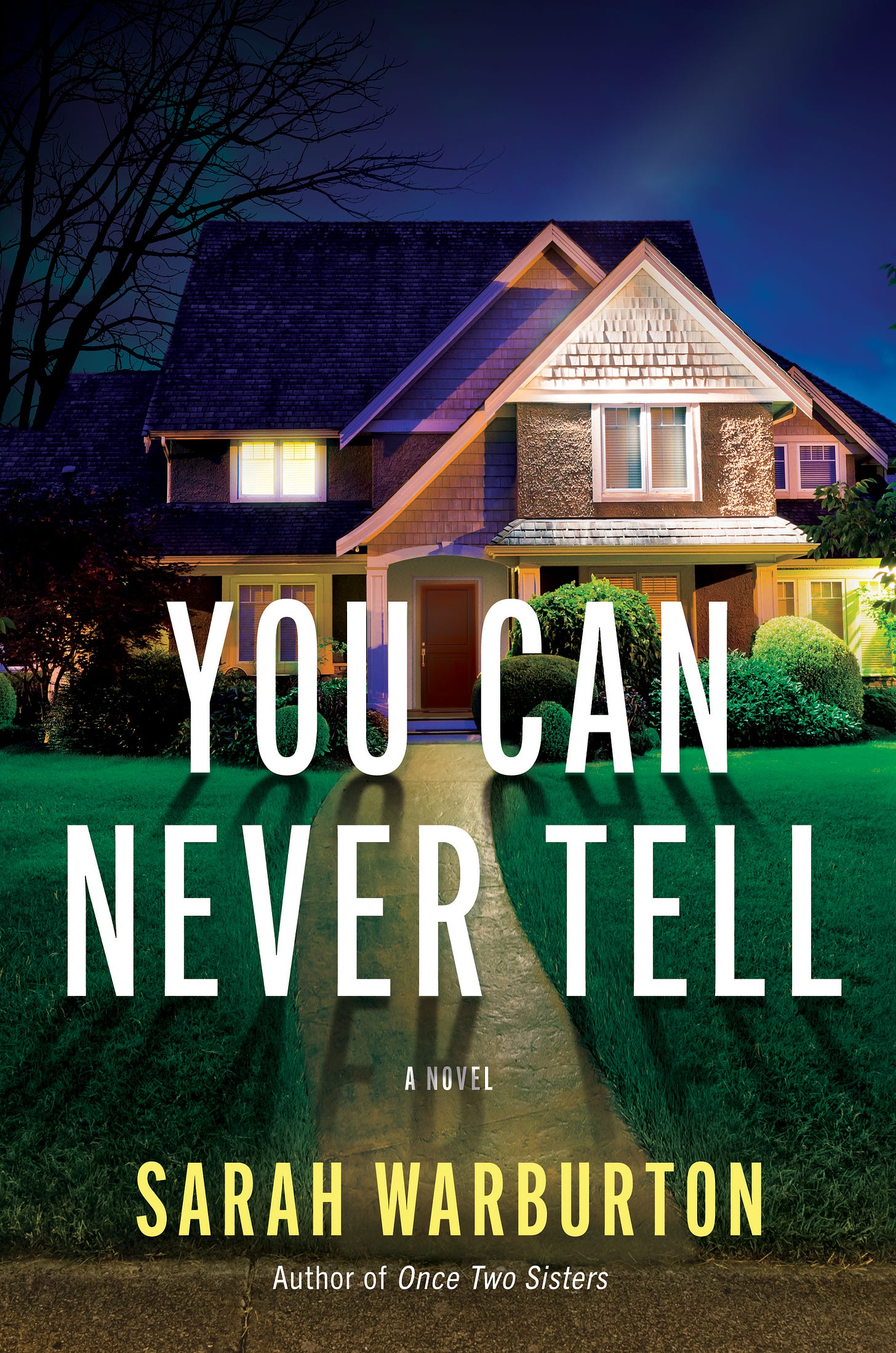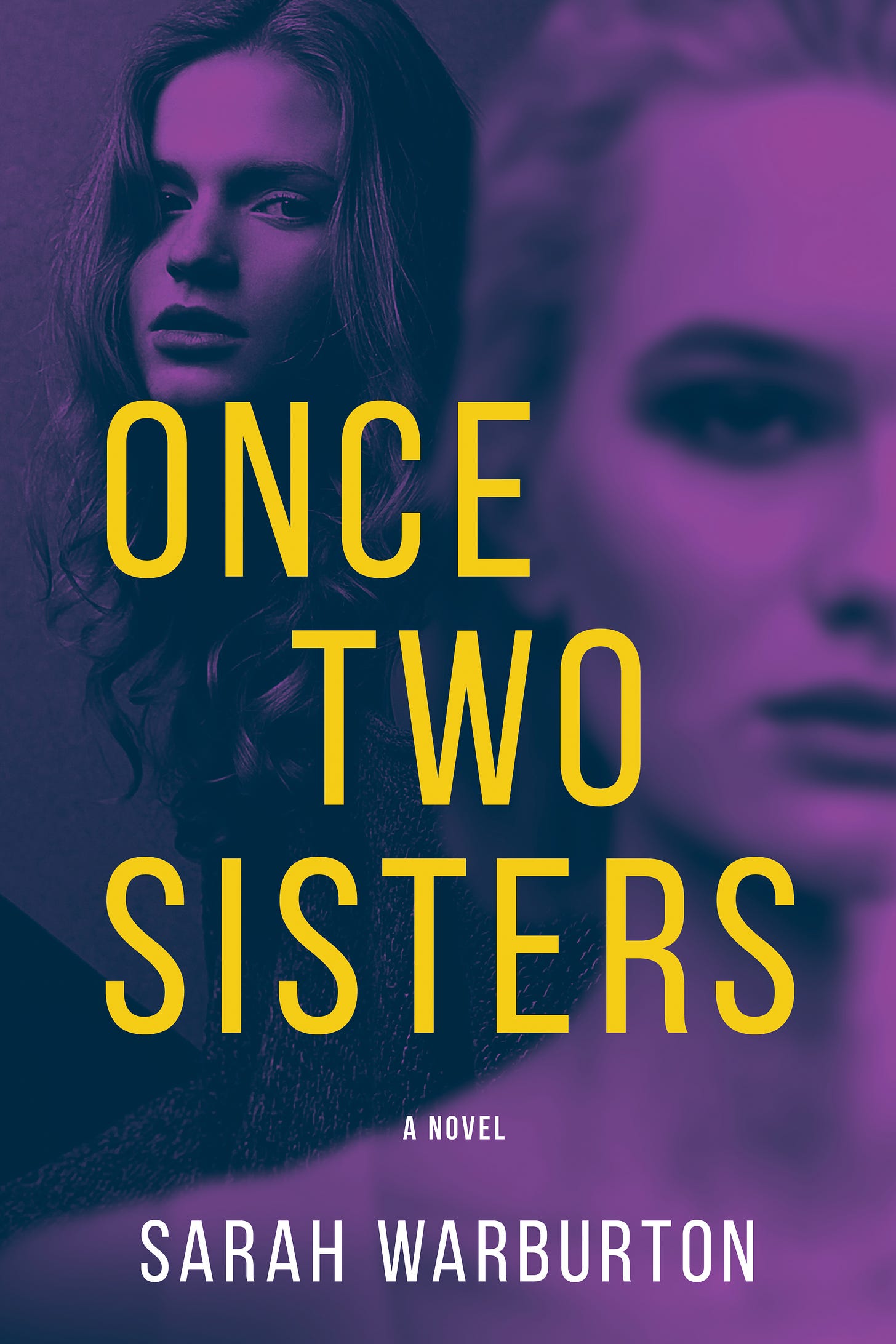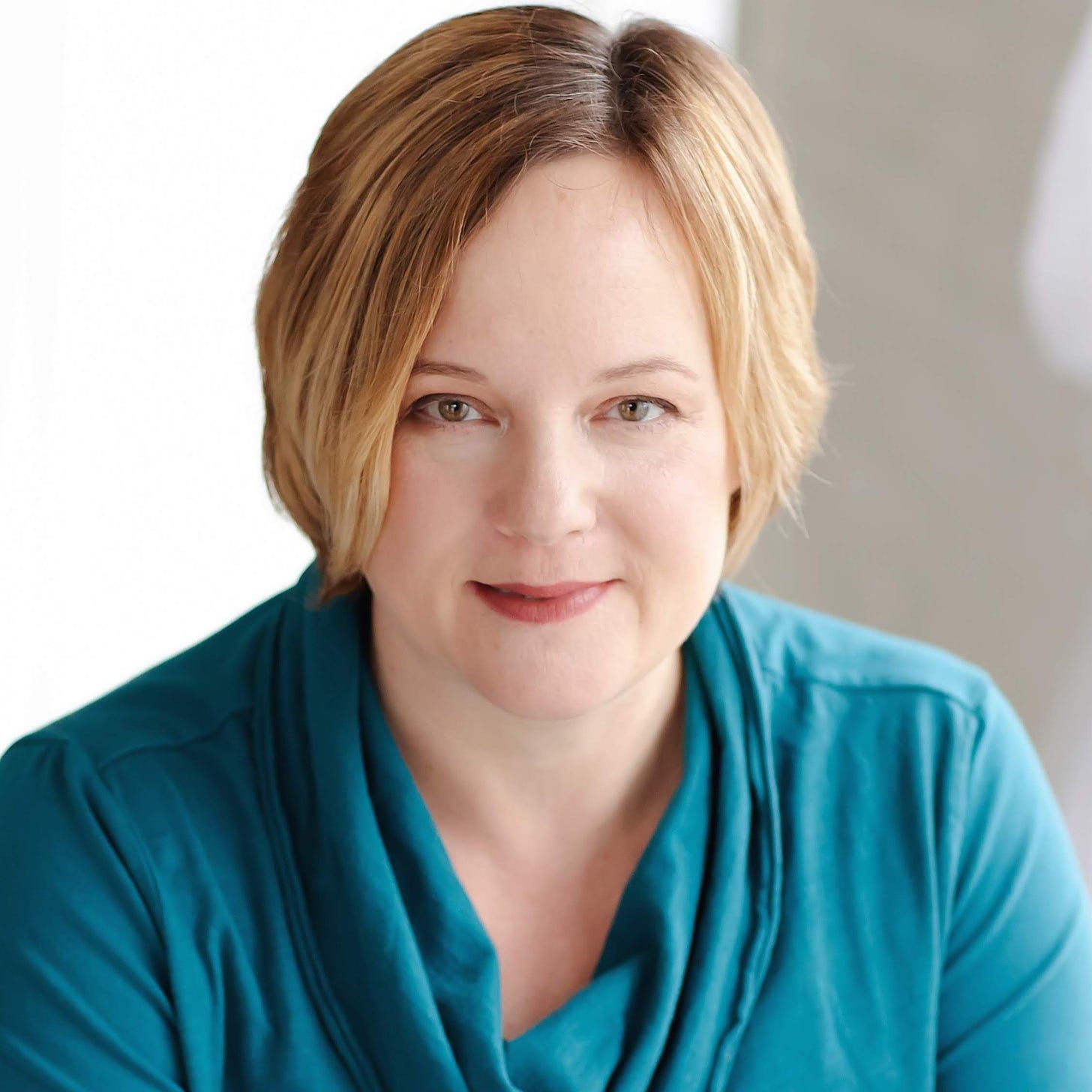Beating the Odds: My Interview With Thriller Writer Sarah Warburton
If you're a fan of page turners and emotional rollercoaster rides, read what Sarah has to say about her writing methods
Sarah Warburton got married in a library.
Sarah Warburton was a Classics major in college.
Sarah Warburton, through talent, persistence, and a thick skin, beat nearly insurmountable odds to become a published author. Her latest novel, YOU CAN NEVER TELL, a chilling psychological thriller inspired by the Moors Murders, drops Tuesday, August 10th, 2021. You can order it here. And I was lucky enough to get an interview with her, which is pure good fortune, because Sarah Warburton is well on her way to becoming a megastar in the genre.
But first, I’d like to talk about the process a writer goes through just to get to this point. I strongly feel that the details of this journey are glossed over in most interviews, which detracts from a reader’s understanding of what a remarkable achievement it is for any author to get published.

Most authors devote at least a year writing and polishing their manuscripts. Much of that time is spent staring at a blinking cursor or a blank page, trying very hard not to panic.
Few authors actually enjoy writing. All authors love having already written. It’s not just the writing itself they find so challenging. It’s the marshalling of attention and focus, and the forced organization of thought. Also, the friends and parties and adventures they’re missing by planting their derrieres in chairs and tackling their manuscripts.
After a manuscript has been thoroughly vetted and de-loused, the author sweats bullets sending out query letters to literary agents. The vast majority of these queries are rejected outright. Agents are the gatekeepers, and they never yield the gate unless they find enormous merit in your work. A writer’s odds of getting a literary agent? One in 6,000. It can take up to another year just to find representation, if representation is to be found at all. Many agents take on no more than six new authors a year. This is the first of many reasons why making a living as an author is tantamount to winning the lottery. The odds are wildly not in your favor.
Assuming an agent does agree to represent the author, now comes the “fun” part. The agent submits her own query letters to the gatekeepers of the publishing world: editors. How many books get published per year? Editors and publishers agree that the odds of being published are 1-2%. Out of one million books published each year in the U.S. (over sixty percent of which are self-published, so we can take those out of the equation), that’s one or maybe two out of every hundred manuscripts an editor receives that have already been quality controlled by an agent.
Granted, most manuscripts sent to agents are absolute dreck. Great is the difference between someone “who’s always wanted to write a book” and an author of Sarah Warburton’s stature. Here is a woman who grew up reading everything she could get her hands on, loved books so much she got married amongst them, and has devoted her life to perfecting her craft.
And that’s why the entertainment value of Sarah’s book is to be trusted. You’re in expert hands. You’re not going to be disappointed. And any book that manages to beat those odds is a book worth reading.

Here then, with great pride, is my interview with Sarah Warburton, author of two psychological thrillers, YOU CAN NEVER TELL, and ONCE TWO SISTERS, which Publisher’s Weekly, the holy of holies, reviewed: “A breathless energy imbues the strong plot … Warburton delves deep into the psychological underpinnings of her believable characters in this highly entertaining domestic thriller."
1. What’s the hardest part about being a writer? How do you power through having to do that hard thing?
My brain and its incessant chatter is absolutely the hardest part of being a writer. The same organ that generates stories and phrases and creates worlds out of nothing also ruminates and speculates and denigrates my real-world life. Shutting down the static so I can concentrate is the first step to getting my writing done. The simplest things are sometimes the most powerful fixes. First I run the “halts” test: am I hungry, angry, lonely, tired, or sick? If so, my brain’s going be worse than Stadler and Waldorf. I exercise daily, take my dog Daisy for long walks in pretty places, do “Yoga with Adrienne” (she even has a routine for writers!) and use Insight Timer for guided meditations and sleep talk downs. Having a “busy brain” is a good thing for a writer, as long as it’s working for you and not against you!
2. What is it newbie authors should know but usually don’t?
Don’t wait for the muse. Don’t wait to “feel like” writing. Don’t wait until you’re “good enough.” The most important thing is writing. First write, then revise, then repeat. Always be writing. I set a word count goal when I’m doing a rough draft because, in the immortal words of my buddy Barbara Ann Wright, you “can’t revise what you haven’t written.” And your first draft isn’t going to be pretty. So what? You can make anything better, but only if you write it. Your brain will tell you it’s not good enough or you’re not inspired or you should clean the gutters first, but if you want to be a writer you have to write.
3. Do you read your reviews? If not, why not? If so, why so?
Not if I can help it! I’m really grateful that people take the time to review my books, and I do think reviews are really helpful for readers. But as a writer, the book being reviewed is already written and beyond my ability to change it. I won’t lie, a good review feels intoxicating, but a bad review feels like being stabbed in the gut. Neither of those feelings helps me focus on my work. It’s a little like stage fright, when I think about other people reading and judging as I’m creating. I am in a few critique groups, but again, that’s a work that’s still being revised and changed. And even then I have to have a solid sense of what I want to do before I bring in pages, because a critique of a work in progress is only good if it brings the novel closer to your own goal.
4. Let’s say you’re at a party of people you don’t know, and some guy comes up and aggressively tries to recruit you to write a “great idea” he had. How would you handle that?
Let me start by saying, I’m not a huge fan of “some guy aggressively trying to recruit” me for any purpose. So that’s not a great way to get me to listen to your idea. But it’s also true that somebody else’s idea doesn’t do a thing for me as a writer. I know I said you don’t have to wait for inspiration in order to write, but you do need to know what gets you fired up. If there’s something you can’t stop wondering about, that’s your inspiration. And odds are good it won’t do a thing for anyone else. A “great idea” sounds gimmicky to me, because what I’m looking for in a story isn’t plot-driven. I want to experience someone else’s world, even if it’s a terrifyingly creepy one. Fiction is one of the few mediums where you’re invited into another person’s life experience, all the way down to the core of who they are. An idea that interests me will speak to how people feel and why we act the way we do. My new book is “inspired by the Moors Murderers,” but technically it’s inspired by the specific way those killers were caught. Ian Brady and Myra Hindley were caught when they tried to involve their neighbor, Hindley’s brother-in-law. He spent hours in the middle of a murder and cover-up before returning home, hiding with his wife and baby, then calling the police. I kept turning this night over in my mind, wondering why the murderers tried to recruit him, how he and his wife didn’t know they were living next to serial killers, in what ways their marriage must have suffered afterwards, and whether they would ever trust anyone again. So that was my “idea” but then I needed to do the actual work of creating a fully rounded story. The hard part is crafting the scaffolding of a novel, understanding all your characters, and (of course) writing 80000+ words. So I might tell the guy his idea sounds great and he should write it up because I couldn’t do it justice. Or I might tell him all the things I’ve written here, and maybe he’d back away first.
5. What are your greatest strengths as a writer? Are they related or unrelated to your greatest strengths as a person?
This is a tough one. I’m not sure I’m qualified to evaluate my own work, but I know what I’d like my greatest strength to be. Empathy. More than any other art form, I think, novels invite people to step inside someone else’s life and see the world through their eyes with all the baggage of their history and fears and desires. As a thriller writer, I have some complicated characters who definitely don’t make the best decisions, but I hope by the end of the novel, my readers love them, root for them, want them to be safe and happy. And in real life, I’d like to have that kind of consistent, deep empathy for others. I’m not totally there yet, but it’s my goal. Is that too idealistic?
YOU CAN NEVER TELL, published by Crooked Lane Books, distributed by Penguin/Random House. Buy your copy here.





I've always loved the "being recruited" to write someone's "great idea." Shit, y'all...I can barely manage my own hare-brained, half-baked ideas, much less the "great idea" of someone whose head I've yet to spend ANY time in. People who ask me that impress me as people who clearly have NO FUCKING CLUE as to what the writing process entails, or how it's unique to each individual writer. You never know; that person might have to sacrifice a goat (or a virgin) prior to setting themselves in front of a laptop. Do you REALLY want any part of that??
I didn't think so. ;-)
Oddly enough, I've always enjoyed the writing process -- once I got started. Understand that the only "real" publications I have are academic ones (I agree, the self-published piece doesn't really count.) I spent a year unable to write anything because an editor insisted I get this one essay that I felt was unsalvageable prepped for publication. But once I was past that block, I burned through the diss like Sherman marching through Georgia. I even built in break times to give myself a breather. Doing 'Quantum' with Randy there were a few moments when I despaired of ever having the needed insight (and then I did.)
"Shutting down the static so I can concentrate is the first step to getting my writing done." -- Yeah, that's the thing for me as well. My way of doing that is the exact opposite of most folks, though. I basically wrote my diss with Metalica blasting at 9. This current piece of fiction I'm working on I've assembled an entire "soundtrack" on Spotify for mood music.
Thanks for this interview!